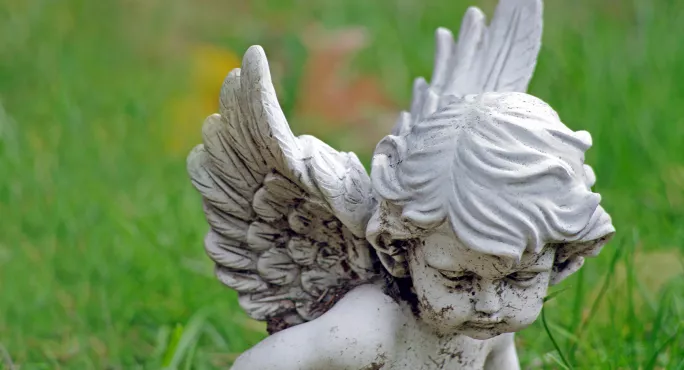- Home
- ‘In a tragedy, your teacher to-do list vanishes’
‘In a tragedy, your teacher to-do list vanishes’

On Thursday 19 July, I arrived for the penultimate day of term with my head buzzing with schemes of learning, exit lists, a tricky bit of politics I needed to resolve and the taste of holiday freedom just one get-up away. Four hours later, my husband and I were two hours’ drive away from work, having just learned that his mother had passed away at just 67 years of age.
Here are some of the lessons I have drawn from this in relation to teaching:
Family comes first: work can wait
My “to do” list just dissolved. Its contents literally disappeared from my head - the tasks either got done by someone else or didn’t matter. I actually didn’t give a thought to education, or anything education-related, for a full nine days. And the world didn’t stop turning. Conversely, focusing on what really, really matters made life all the more precious.
A supportive boss matters
“Just let me know when you need to leave and don’t worry about anything else.” These were my boss’s words when I received the call on Thursday morning. She was on the phone listening to me rant and rail at the end of that terrible day, and again two days later to offer support with some of the practicalities. She sent her thoughts and prayers before the funeral. How people treat you when you’re at your most vulnerable really, really matters - and will never be forgotten.
If you’re going to do a job, do it properly
Thinking of people at their most vulnerable, I have learned so much about so many things I’d never have imagined needing to know in the past 10 days. Most significantly, the groups of people who work quietly in the background supporting people as they absorb the worst possible news. The way they stand, the eye contact and the words they choose will stay with us always. From the police officer who first broke the news to the coroner who had tears in her eyes as she noted that my mother-in-law was the same age as her own mother - the simple direct kindness of these people leaves indelible marks. A very special mention must go to the funeral directors, who greeted us when we rocked up without an appointment to demand a prompt Hindu funeral - these people who must understand every detail of every possible religious observance of death, who must see people in the stunned aftermath of loss. The funeral director who didn’t do the “sympathy voice” and heard our myriad demands patiently and made it all happen before the wheels of officialdom had even got moving. Who sat and smiled patiently whilst we laughed hysterically (grief comes in strange kinds of waves) at the possibility of Dalek flowers, Star Trek coffins and flowers in the shape of, yes, a skip.
As teachers, we too are daily in contact with people at their most vulnerable, and students with some of the heaviest burdens to bear, and I was humbled by the attention to every possible detail, the necessity of an almost instantaneous bond of trust, and the immediate acceptance that everybody is different. Just as one student may relish the heat of competition in the classroom and another may baulk at being questioned without warning, while one bereaved relative might sob through the first encounter, another may need to be officious and give the appearance of utmost organisation and another still may wish their loved one’s ashes to be turned into a pendant.
There’s always something people can do to help
I’ve been reminded of the cyclical nature of life and death through this process, during which our vulnerability has echoed that of the earliest days of parenthood. During that period, I remember a wise friend advising us to accept all offers of help. I have learned that, in response to the question, “Is there anything I can do to help?” there is an infinite range of possible responses.
Childcare, emergency cat food, concertina files, photo frames, lifts around London, spontaneous pub trips and emergency supermarket shops have been among the genuinely helpful and supportive things people have provided us with.
Next time a colleague goes through a traumatic period, when I offer to help, it will be less from imagining that I can offer groundbreaking moral support than to perhaps relieve them of a pile of marking, make sure they get a decent lunch, or simply give them time to rant or rail or giggle as they feel they need to do so.
Pathetic fallacy
My students and I share pathetic fallacy as our favourite literary device, and I look forward to sharing this one with them. I’m not superstitious, but there was a moment of pure and delicious glee at the funeral - a moment which would have made my mother-in-law chuckle out loud. After 53 days of no rain, just as the curtain closed around the coffin, there was the first crash of thunder followed immediately by the first drops of rain. “Auspicious,” said the relatives. We all had to smile.
Have a wonderful holiday. Rest. You deserve it. Hold your loved ones close. They are what matters most.
Post-script: After thinking long and hard, in memory of a woman who believed passionately in creativity, determination and social mobility, we have also set up donations for the amazing Chickenshed Theatre. Should you wish to join our close family and friends in donating, we would be delighted.
Emma Kell is a secondary teacher in north-east London and author of How to Survive in Teaching
Keep reading for just £1 per month
You've reached your limit of free articles this month. Subscribe for £1 per month for three months and get:
- Unlimited access to all Tes magazine content
- Exclusive subscriber-only stories
- Award-winning email newsletters



